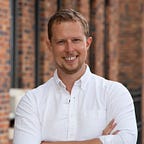9 Empathic Questions to Add to Your Discovery Process
Long ago we past the threshold where the limiting question in any creative or professional project was “what can we do?” to “what should we do?” Whether you are building a website, an advertising campaign, or even a new headquarters, the initial discovery process is really the most important step in getting to that “should.” It’s also often the funnest part of the journey, full of mystery and corresponding possibility.
And while the details of your scope will determine what you need to know about users, regulations, and other nuts and bolts, over the years we found a number of aces to keep up our sleeves when evaluating a new challenge. As you are sussing out your next project, whether on a business development “first date” or a proper kickoff meeting, consider adding some of these empathic questions to your arsenal as well.
How would you explain what you do to my 85 year old grandmother who has never owned a microwave, let alone a computer or iPhone?
It’s easy for us to get caught up in our own “Newspeak,” especially when we spend all day exchanging acronyms and jargon with co-workers, and then most of our free time around other people of similar ages, demographics, incomes, and locations as ourselves. But, most people aren’t you. Most people don’t know what you do, and you need to explain it in language that they will understand. How can you explain what you do in language that my grandmother, whose most modern piece of tech is a turn-of-the-millennium flip phone would understand?
What does the world look like when you are wildly successful in accomplishing your mission?
A lot of people are going to first point to their mission statement here, but that’s not what we want to know. Instead, this question gets the subject to paint a picture of the world they want to build — really the “why” they are so passionate about that mission. A compelling vision will attract others, which is why it’s “I have a dream,” not “I have a third quarter goal.”
What are some potential pitfalls with this project? Where can things go wrong?
Hope for the best but plan for the worst. Acknowledging potential stumbling blocks at the outset makes sure that everybody at the table sees them and can avoid them. When you recognize a weakness or risk, then they don’t become a point of contention, but rather a point of collaboration as you can work together to solve the problem at hand.
On the hard days, what about your work keeps you going?
Even the most determined and optimistic among us have rough days. When the L’s are stacking up and the haters are at the gates, what do you look to that keeps you inspired? Or alternatively, how do you recharge and re-energize yourself? Identifying this source of strength can help power your brand and your work.
What is the biggest mistake you’ve made? And what have you learned from it?
We learn more from failure than success, which Thomas Edison summed up best when asked about his failed experiments, “No results? Why, man, I have gotten a lot of results! I know several thousand things that won’t work.” What hypotheses have you tested and broken?
What is the one thing you want somebody remembering about you?
People are busy and the world is noisy. If most people remember anything about you, it’s often one small thumbnail of you or your brand. What do you want this singular thought to be?
What do you know or understand that your competitors don’t?
The greatest companies and leaders all have a “secret insight” that makes them different and is why they win. Amazon understood that we will one day buy everything online. Spotify understood that what we really wanted was an all-you-can-eat buffet of music. Spirit Airlines understood that some people will happily make do with zero frills for the cheapest ticket. What is your thesis?
What is the biggest misconception about what you do?
It’s a given that nobody will ever understand you like yourself. But what is the fact of your work, your industry, your ideas that people get wrong most often? Where do you find yourself correcting others? This could just be an area that needs to have special focus, or could be a lever to get your audience to change their preconceived ideas and behavior.
If your brand could drive, what kind of car would it own?
I find that this is a much more effective version of old cliche conversation starter asking “if you were a tree, what kind of tree you would be?” This is partially because many people don’t know all that much about varying tree species, and partially because we’ve all been on the receiving end of countless thousands of automotive marketing messages over our lives and thus have a pretty good informal mental map of how these brands position themselves. (By the way, your brand might not drive — does it walk, bike, or ride the train maybe?)
